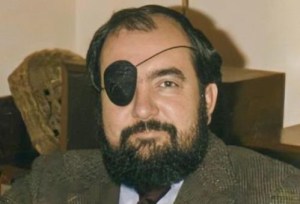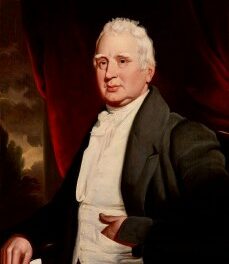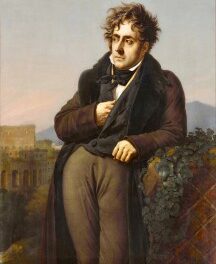We support our Publishers and Content Creators. You can view this story on their website by CLICKING HERE.
We are not perfectly transformed in our minds. We are still slightly hypocritical. But Christ still calls us to speak of his mercies. Knowing our weakness, we can be gentle with others and reverent toward God, who knows our weakness and yet loves and uses us for his purposes even as he is healing us.
 “I have a question,” my student said ominously as he sat in the chair in my office. I braced internally and probably externally—my heart is worn on my whole demeanor. When he asked it, I was relieved: “How can I be a theology major and keep sinning?”
“I have a question,” my student said ominously as he sat in the chair in my office. I braced internally and probably externally—my heart is worn on my whole demeanor. When he asked it, I was relieved: “How can I be a theology major and keep sinning?”
You can’t go for long in Christian life without discovering what St. John Henry Newman meant when he said, “To know is one thing, to do is another; the two things are altogether distinct.” Knowing that something is a sin to be avoided is not the same as avoiding it.
To go a little further, we find out that our pursuit of doing God’s will and avoiding what is not is hampered by the fact that knowledge of God’s will hasn’t quite penetrated our entire being. St. Paul’s words in Romans 7:18-19 speak very eloquently for us: “For I have the desire to do what is good, but I cannot carry it out. For I do not do the good I want to do, but the evil I do not want to do—this I keep on doing.” He describes the “delight in God’s law” in his “inner being” that seems stymied by “another law at work in me, waging war against the law of my mind and making me a prisoner of the law of sin at work within me.” Like my student, he cries out, “What a wretched man I am!” (7:21-24).
The Catholic theological tradition describes that seeming paradox of Christian living by talking about how Baptism does indeed put God’s life and his law of love into our hearts, beginning the process of full healing for us, but does not remove “concupiscence,” that “inclination to evil” that is a result of our loss of that “original justice” (CCC 405). The Catechism tell us Baptism calls us to “spiritual battle” to win that war that St. Paul speaks about.
But even knowing this, it is easy to feel, as my student did, defeated by these failures. Perhaps even to suspect I am a hypocrite, saying one thing but really believing another. What’s great about Catholic faith is being able to stop suspecting. At one level, we really are hypocrites. That inclination to evil, what St. Paul calls “the law of sin,” affects our bodies and our minds. We know the truth, but in hidden places in our minds and hearts, we hold on to falsehoods.
Mother Angelica, the founder of EWTN, liked to tell the story of a potential convert who hesitated to move because he was offended by the hypocrites he encountered. She said to quit hesitating: “There’s always room for one more!”
Knowing that I am something of a hypocrite, who really believes lies in some part of my mind while speaking truth with my lips and my laptop, is simply to know that my healing hasn’t been finished. That I know my own wretchedness is itself a cause for thanksgiving because it means I can seek out the full cure from Christ who saves me. I can enter into that spiritual battle the Catechism talks about with some knowledge of wherein the battle lies. Our great enemies are the world, the flesh, and the devil. And they wage war ultimately on the battleground of the human mind and heart, attempting to snare our hearts away from the truth we know to the lies we half-believe in parts of our souls. As the saying goes, lead me not into temptation, for I can find it myself.
We can rejoice as St. Paul does that Christ has given us victory over sin and death in his sacrifice on the Cross. But we must indeed do the work of receiving the spoils of that victory. St. Paul summarizes this work as a work of sacrifice and transformation: “I appeal to you therefore, brethren, by the mercies of God, to present your bodies as a living sacrifice, holy and acceptable to God, which is your spiritual worship. Do not be conformed to this world but be transformed by the renewal of your mind, that you may prove what is the will of God, what is good and acceptable and perfect” (Rom. 12:1-2).
My student agreed that this is indeed the goal, but he worried about the appropriateness of a sinner teaching others about Christ. I pointed him to the Dominican Simon Tugwell’s excellent book Ways of Imperfection. In his chapter on Humbert of Romans, Tugwell examines the fifth Master General of the Dominican Order’s advice to young brothers who gave excuses for not being able to preach. Young Dominicans often wanted to “hold back” from preaching in part “because they feel spiritually unworthy.”
As Tugwell tells it, Humbert did not accept such excuses: “So to the man who is too humble to go and preach Humbert rudely says that his humility is shown to be false precisely by his refusal to do the job he has been given.” For Humbert, the call to preach God’s word is “too urgent” a task to wait for perfection. Besides, he argues, in speaking to others of God’s truth, the speaker stands to gain understanding for himself, gain “a greater certainty of salvation” as he speaks of the Lord’s faithful love, and also gain “spiritual increase” for himself by his obedience to the Lord’s call to share his love.
Though my student is not a Dominican, the lesson applies to him and all of us. We are not perfectly transformed in our minds. We are still slightly hypocritical. But Christ still calls us to speak of his mercies. “Always be prepared to make a defense to any one who calls you to account for the hope that is in you,” writes Peter, adding, “yet do it with gentleness and reverence” (I Peter 3:15). Knowing our weakness, we can be gentle with others and reverent toward God, who knows our weakness and yet loves and uses us for his purposes even as he is healing us.
Republished with gracious permission from The Catholic Servant.
The Imaginative Conservative applies the principle of appreciation to the discussion of culture and politics—we approach dialogue with magnanimity rather than with mere civility. Will you help us remain a refreshing oasis in the increasingly contentious arena of modern discourse? Please consider donating now.
The featured image is “Two Hypocrites Praying” (c. 1600 or later) by Quinten Massys, and is in the public domain, courtesy of Wikimedia Commons.
Share This Story, Choose Your Platform!
Go to Top

 Conservative
Conservative  Search
Search Trending
Trending Current News
Current News 






